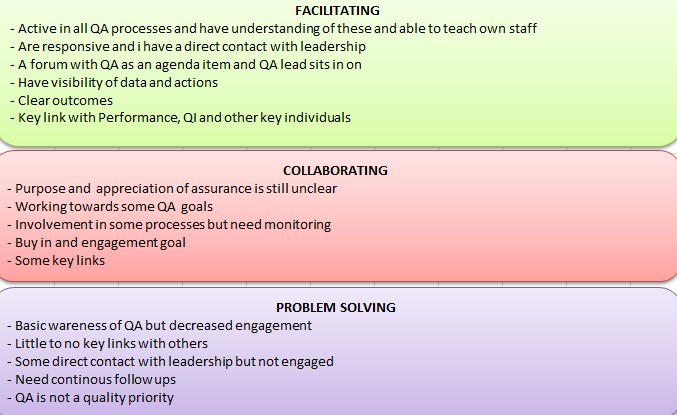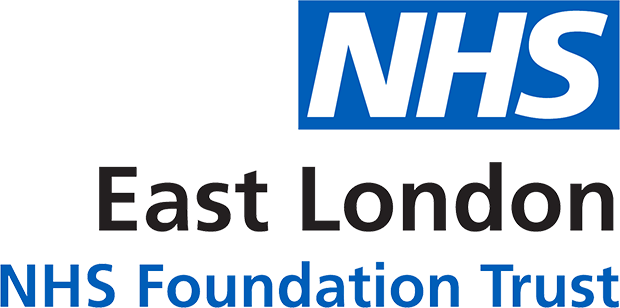A Shared Purpose

The Quality Assurance team play a role in measuring quality and supporting improvement in the quality of care provided by EFLT services to patients. Yet, as a small team so far away from the services, what have we found to be key in playing our role successfully?
Building and sustaining relationships with directorates!
Having effective and strong relationships with directorates moves away from the “tick box exercise” notion and moves into taking quality into their own hands. This enables quality leads to appreciate and understand the value of assurance, make it meaningful, and actively engage by owning the processes and the data to monitor outcomes e.g. CQC and Accreditation.
When I first joined the QA team, leaving behind a clinical role, one of my fears was that I would not be close to services anymore. Because I have always believed, one of the key ingredients in supporting services for active engagement and meaningful objectives in quality is to have a direct relationship with them.
But we are 1 small team covering over 300 services/teams so how would this work? What will this look like?
Over the last 16 months we have been on a journey to answer these questions as a team, to ensure we create and sustain effective relationships with services across the Trust. We took action in the following ways:
- Acknowledged this is vital and making it a part of our annual strategy. Therefore, a core focus in our work stream planning and implementation

- In restructuring our team this spring, we now have 2 strategic leads focusing on continuing and developing relationships, this enables us to support services in the most meaningful personalised way possible. Enhancing our relationships to be transformational rather than transactional
- Reviewed relationships by measuring our interactions, forums, contacts and their participation in workstreams. This then helped identify gaps for us to build into our engagement plans
- Drafting a model to define what relationships can look like:

So what has helped us create and sustain relationships with clinical services?

How do we know we are on the road to having effective relationships with our directorates to conduct assurance?
- Increase participation and engagement in audits, CQC, PREM and Accreditation
- Increase in effective communication with services directly
- QA being valued and included in various forums
- New ways of implementing assurance in unique services
- Direct feedback from clinical directors:
…”Team have been key members of the Forensic Quality Committee and we have benefited immensely from their input in improving the quality of the various aspects of the service. These include the relaunch of the Audit programme and Service User led Standards, with vastly improved accuracy of data and ease of use…”- Forensics
.. “Fantastic support, razor sharp focus on quality – a crucial enabler for our services to stay on track and excel”… – IAPT
I personally gain a significant amount of learning and understanding from my relationships with directorates I support. Not only do I have the opportunity to get to know and observe great leaders within the Trust, I get to understand processes and structures at a frontline level to enable me to make assurance meaningful to suit service needs. Having a good rapport with directorates, it is rewarding to see first-hand the impact of QA work.
Whilst we still have a long road ahead, nor are we experts in this area, we are proud to demonstrate that fostering good relationships with services is fundamental to our work and one of our key priorities. We do not always get it right the first time but, like everything else, as true quality department members, we continue testing until we do. My initial fear of feeling far away from the work has been erased and if anything I feel honoured to be at the forefront of creating such relationships through assurance with directorates to improving quality of care. After all, this is our shared purpose.


